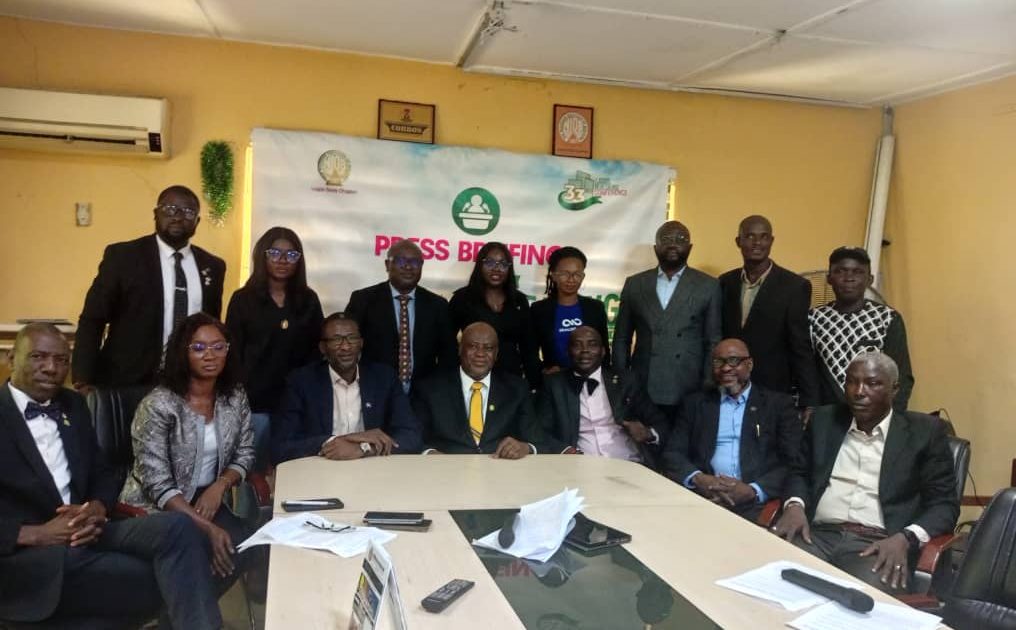The Nigerian Institute of Building (NIOB), Lagos State Chapter, has underscored the urgent need for local construction firms to address Environmental, Social, and Governance (ESG) issues to mitigate the rampant building collapses currently plaguing the industry. During a press briefing preceding the 33rd Lagos Builders’ Conference and Annual General Meeting, former NIOB Chairman Sunday Wusu asserted that a stronger emphasis on ESG principles could significantly reduce the frequency of these catastrophic structural failures. He noted that neglecting these essential aspects not only endangers lives and resources but also undermines the entire construction framework. This call for enhanced commitment to sustainability reflects a growing recognition that adherence to ESG standards is vital for the long-term success and survival of local construction companies.
Wusu elaborated on how ESG serves as a crucial framework for assessing a company’s risk management and opportunity-taking in a fluctuating market landscape. He emphasized that builders and real estate professionals must equip themselves with knowledge of these concepts if they wish to contribute positively to the industry. Companies failing to integrate these values into their practices may find it increasingly difficult to attract investment, particularly from foreign sources that often adhere to stringent sustainability criteria. The former chairman’s remarks prompted critical reflection on the apparent disparity between local and foreign firms, as the latter often prosper due to their adherence to ESG standards, which local companies frequently overlook.
In his comments regarding the upcoming Lagos Builders’ Conference, Chairman Adeyemi Adeoye articulated the event’s goal of fostering knowledge transfer among industry stakeholders. The conference’s theme, “Breaking Barriers and Empowering Change in Nigeria’s Real Estate Sector: Process and Control,” serves as a beacon for exploring pivotal issues and policy directions affecting the sector. By bringing together industry experts, the conference aims to dissect existing challenges and strategize for a more sustainable future in real estate. Adeoye’s vision for the conference is rooted in collaboration and shared learning, with the hope that these discussions will ultimately contribute to systemic change within Nigeria’s construction landscape.
To address the complexities of the conference theme, several subthemes have been outlined to guide discussions and education around critical aspects like innovative financial models for project development, strategies for affordable housing financing, and infrastructural impacts on economic growth. By engaging in these topics, participants are encouraged to reflect on best practices and anticipate future developments within the industry. The recognition of environmental sustainability and the influence of ESG criteria on real estate operations is central to the dialogue, signaling a shift in the local construction ethos towards greater accountability and social responsibility.
Adeoye also stressed the importance of understanding the regulatory environment’s role in shaping the real estate sector. As various stakeholders convene to explore the impact of national policies on building practices, the conference is positioned as a platform for generating actionable insights. This dialogue is critical for informing future governance strategies that can enhance the operational efficiency and sustainability of construction firms. The collaborative approach is designed to foster a more robust regulatory framework that supports not just compliance but encourages a culture of innovation and responsible development within the built environment.
Ultimately, the NIOB’s advocacy for embracing ESG principles within local construction practices reflects a deeper understanding that sustainable growth in the sector hinges on both social responsibility and sound governance. By prioritizing these values, local firms can not only reduce the risk of building failures but also enhance their competitiveness in attracting investment. As the real estate landscape continues to evolve, the collaborative efforts advocated by the Nigerian Institute of Building will be essential in shaping a resilient industry capable of confronting contemporary challenges and leveraging new opportunities for sustainable development. The upcoming conference represents a pivotal moment in this journey, as stakeholders unite to redefine the future of building practices in Nigeria.


